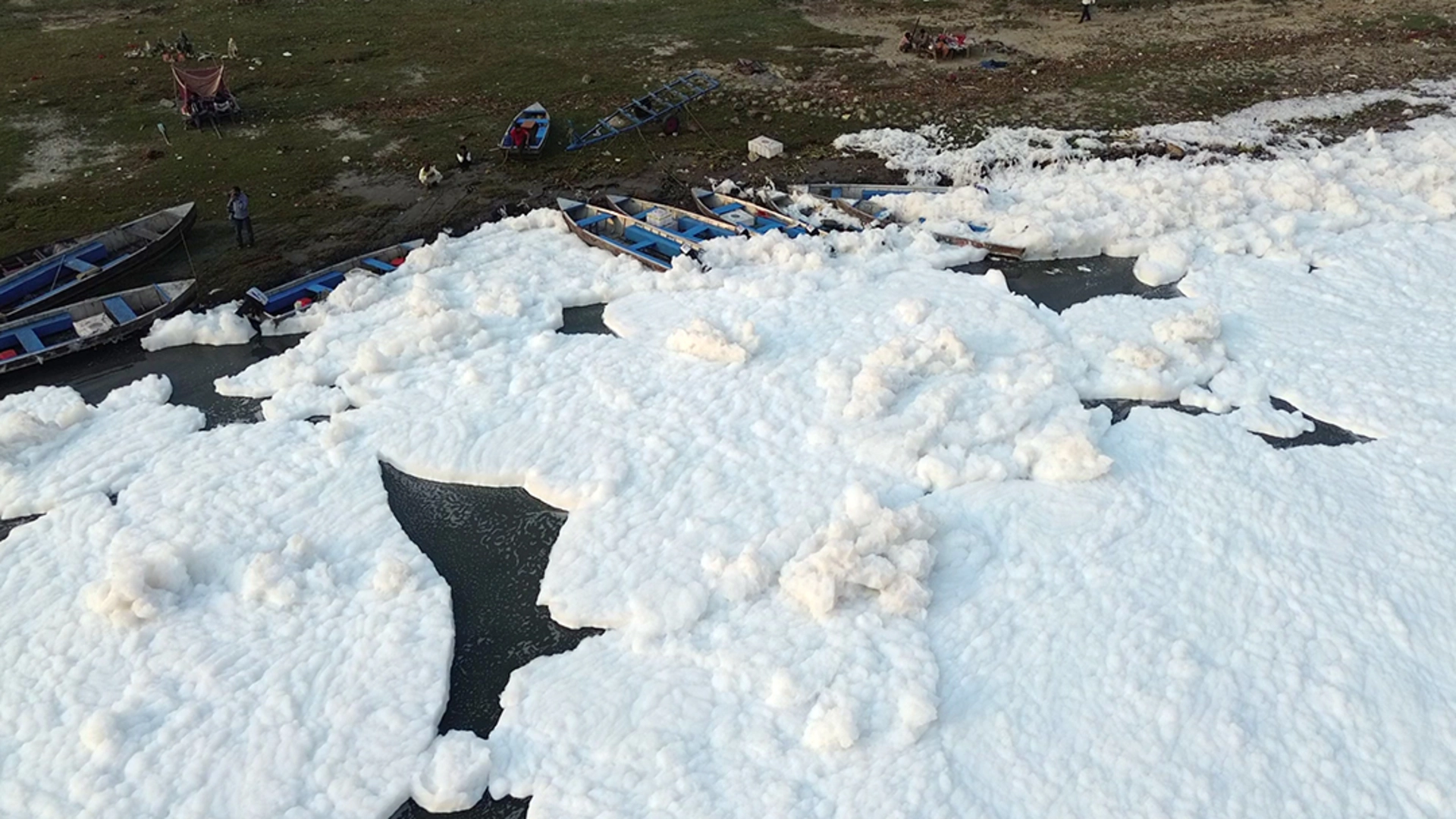The Yamuna River is inundated with toxic foam ahead of Chhath Puja, set to be celebrated from November 6 to 8, raising concerns about escalating pollution levels in Delhi-NCR. The foam, indicative of severe pollution, has led authorities to deploy chemical defoamers to mitigate the issue.
On Sunday, news agency ANI released footage showing the toxic foam floating on the Yamuna at Kalindi Kunj, where pollution levels remained alarmingly high.
BJP leader Shehzad Poonawalla has slammed the Delhi government, holding Aam Aadmi Party (AAP) accountable for the pollution in the Yamuna River. “The day after Diwali, while we are here at Yamuna ghat, we can see a thick layer of foam on the river. This foam is a direct result of the corruption perpetrated by Arvind Kejriwal and the Aam Aadmi Party. Now, ahead of Chhath Puja, they are merely sprinkling chemical defoamers,” Poonawalla said. He added, “Arvind Kejriwal is responsible for turning Delhi into a gas chamber; we now have to wear masks. They blame Uttar Pradesh but ignore the stubble burning issues in Punjab. They have failed to address the root causes of pollution in Delhi.”
Sprinkling of Anti-Foam Agent Begins
In response to viral images showing a thick layer of foam on the Yamuna River, teams from the Delhi Jal Board (DJB) began spraying anti-foaming solutions around the Okhla barrage on Tuesday, according to officials from the water utility. DJB officials stated that approximately 12-15 tons of a diluted anti-foaming agent will be applied in this effort, which will continue until Chhath, celebrated from November 6 to 8. The appearance of white foam on the Yamuna is a recurring issue each winter, signifying high levels of untreated sewage and industrial pollutants in the river’s waters.
A senior official mentioned that during a coordination meeting last month, it was decided that eight departments would work together to minimise the toxic froth.
Meanwhile, a thick layer of smog enveloped parts of Delhi on Sunday, with the air quality remaining ‘very poor’. According to data from the Central Pollution Control Board (CPCB), the Air Quality Index (AQI) for the national capital was measured at 369 at 9 am, a sharp increase from the 290 recorded on Saturday. Several monitoring stations reported ‘severe’ air quality, with readings surpassing 400. Data from the CPCB’s Sameer app, which provides hourly updates on AQI levels, indicated that out of 38 monitoring stations, eight—Anand Vihar, Wazirpur, Rohini, Punjabi Bagh, Nehru Marg, Mundka, Jahangirpuri, and Ashok Vihar—recorded AQI levels above 400.







